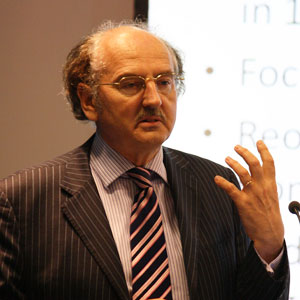Information
Venue
Start
End
20 October 2011 | CIL Seminar
Investment Disputes in the Oil and Gas Sector: Their Implications for the ASEAN Region
Introduction
 In recent years there has been an unprecedented growth in arbitrations between investors and States over energy resources. Some of this is contract-based and some based on the investment treaties that have exploded onto the international law scene over the past decade and more. Faced with the largest wave of unilateral state actions for three decades, how has the new international investment regime worked?
In recent years there has been an unprecedented growth in arbitrations between investors and States over energy resources. Some of this is contract-based and some based on the investment treaties that have exploded onto the international law scene over the past decade and more. Faced with the largest wave of unilateral state actions for three decades, how has the new international investment regime worked?
Concerns about the long-term stability of investment contracts have figured in the international oil and gas industry since its origins. Guarantees from host States to mitigate the risk of sovereign action at a later date are common, but have recently been supplemented by treaty-based instruments such as BITs and MITs. Faced with its first tests, notably in Latin America and Russia but increasingly in Africa and Asia, the new regime has explored notions of ‘legitimate expectations’ and ‘fair and equitable treatment’, in relation to familiar notions of ‘stabilisation’ in state contracts. At the same time, awards by tribunals have mapped out more precisely the duties which investors have to host States.
The seminar asked whether this highly volatile context has implications for oil and gas law and policy for Singapore and the wider ASEAN region (including implications for research). It reviewed the emerging balance that is being established by arbitrators in a series of major cases, some of which are ongoing: between protection of investors on the one hand and respect for state sovereignty on the other. In this context, the new importance accorded to environmental, human rights and ethical issues (anti-corruption, for example) was considered, as was the role of national resource companies as vehicles of the State.
About the Speaker
Prof Peter Cameron is Director of the Centre for Energy, Petroleum and Mineral Law and Policy, University of Dundee and Professor of International Energy Law and Policy. He is also the Associate Dean for Research in the Graduate School of Natural Resources Law, Policy and Management. He is a Professorial Fellow of the Law School at the University of Edinburgh, Fellow of the Chartered Institute of Arbitrators, and Board Member of the Association of International Petroleum Negotiators. He has been an expert witness in a number of cases involving petroleum agreements and taxation issues. He has extensive international experience of drafting oil, gas and energy laws and contracts. Over a period of more than 20 years, Prof Cameron has been a regular adviser to the World Bank, the EBRD, the United Nations Economic and Social Commission for Asia and the Pacific and many governments in developing countries. He was the leader of several European Commission funded projects aimed at promoting the signature and ratification of the Energy Charter Treaty. He has been a legal adviser or team leader on projects concerning petroleum legislation and contracts, EU gas and electricity legislative reform and regulatory issues for governments, national oil companies, international organisations and private oil companies. Some of them are the World Bank, the European Bank for Reconstruction and Development, the European Commission, the Energy Charter Secretariat, the Norwegian Petroleum Directorate, and various agencies of the United Nations (UN ESCAP, UN CTC and UNDP and UN ECE), as well as private companies and investors, such as BP, Shell, Goldman Sachs, Distrigas and Gasunie.
Presentation
To download Prof Cameron’s presentation in PDF format, please click here.

